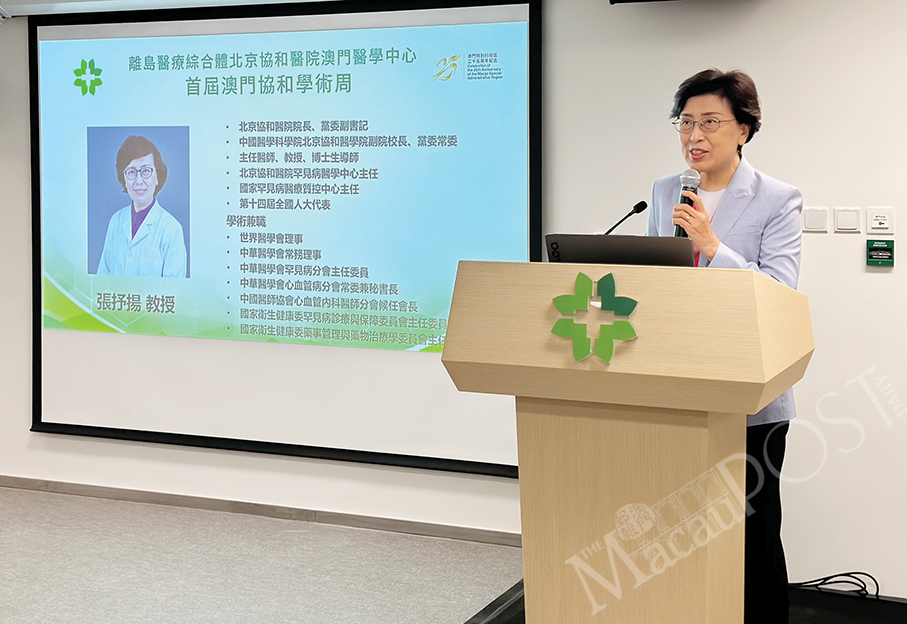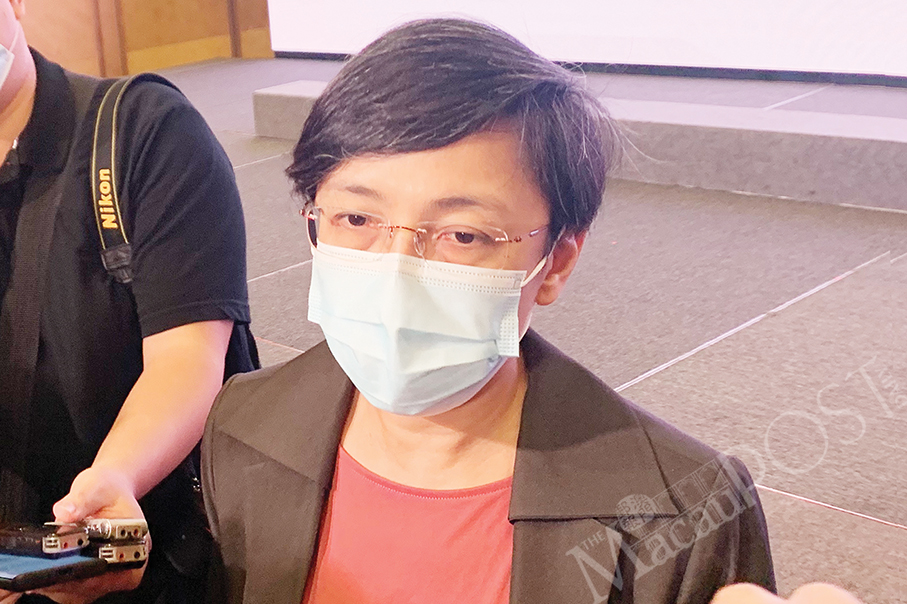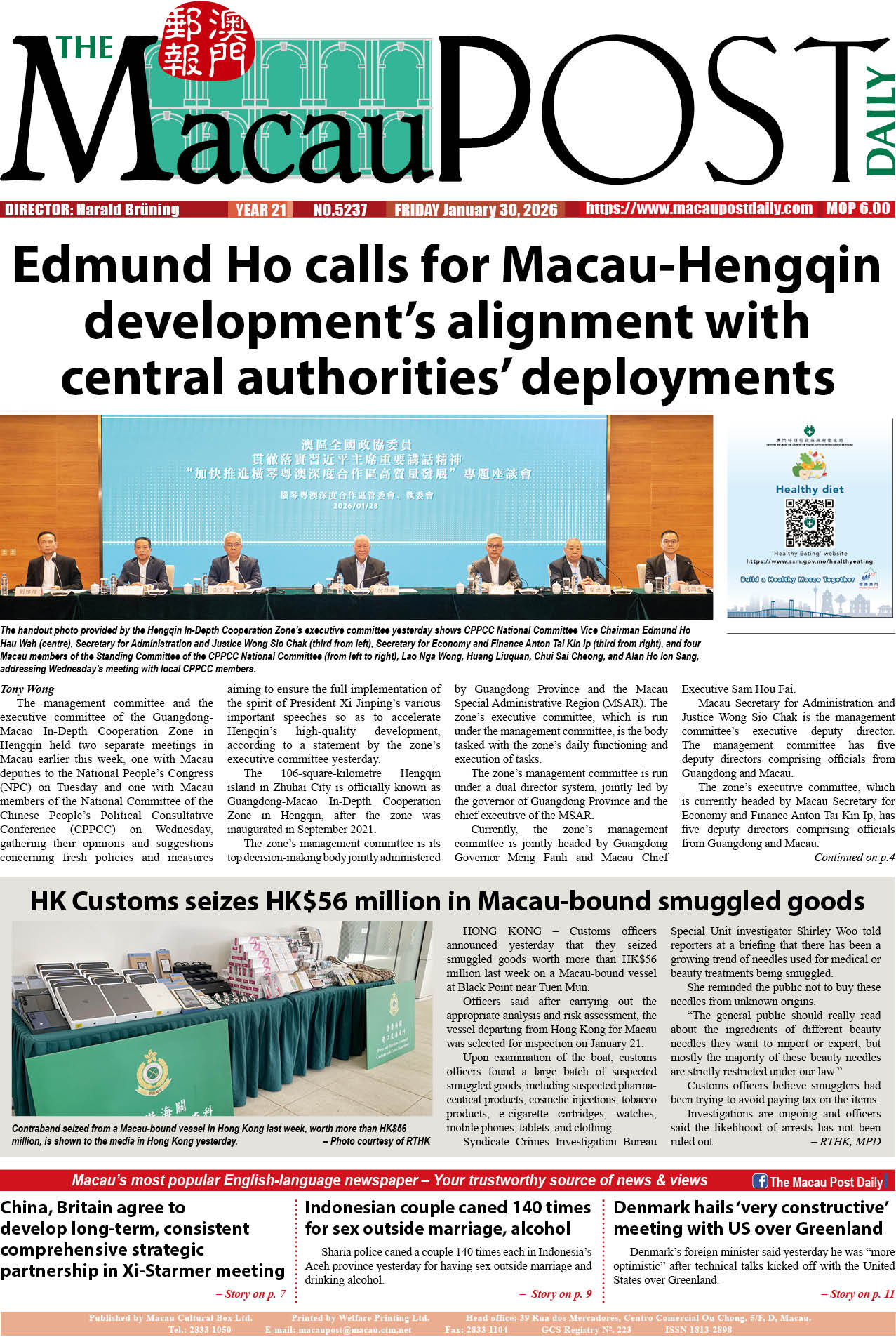The World Health Organisation (WHO) defines rare diseases as diseases that affect less than 0.65‰ to 1‰ of the total population, with 400 million people worldwide in total, according to its rough estimation, being affected by 6,000 to 8,000 different types of rare diseases, and in recent years social awareness of such diseases has gradually been on the rise, so that it is no surprise that a forum on the subject was held yesterday at the Islands Healthcare Complex in Cotai.
There is no uniform definition of rare diseases globally, but there is a wide variety of them, with more than 7,000 of them, according to the US National Organisation for Rare Disorders, affecting between 25 and 30 million US citizens, while in mainland China, as quoted by the 2023 China Rare Disease Trend Report, the number of rare disease patients amounted to about 20 million, with Fabry disease, Pompe disease, Mucopolysaccharidosis, Phenylketonuria, Thalassaemia, Osteogenesis Imperfecta, Hyperglycosaminosis, Organic Acidemia and Wilson’s Disease, among others, frequently occurring in rare disease patients.
Delivering a speech at a sub-forum yesterday of the first ever “Academic Week” hosted by the Islands Healthcare Complex – Macao Medical Centre of Peking Union Medical College Hospital, Peking Union Medical College Hospital (PUMCH) President Zhang Shuyang pointed out that the population of Macau is small and the resources for clinical cases of rare diseases are relatively limited and that Macau’s experience in treating rare diseases is relatively insufficient, so she hoped that the participants in the forum would bring the latest results of their clinical experience and research on rare diseases to Macau to accelerate the enhancement of Macau’s capacity of the provision of healthcare services through mutual learning, so that “Macau compatriots can undergo treatment in Macau without having to leave the city”.
According to the WHO, rare diseases are mainly caused by genetic mutations or genetic defects, and some of them can cause disabilities and fatalities. Rare diseases are actually not rare, WHO statements have pointed out. However, Macau has not legislated on rare diseases, nor have there been any organisations to provide relevant assistance, participants in the forum told the media yesterday.
Speaking to the media on the sidelines of yesterday’s sub-forum on rare diseases, Tsang Kin Ping, widely known as K.P. Tsang, chairman of the Hong Kong Alliance for Rare Diseases (HKARD), said that the forum was a step towards raising awareness of rare diseases in Macau: “Same as Hong Kong and mainland China, the rare disease patients in Macau also face challenges, which is diagnosis, treatment, and the access to drugs…… We would like to support and assist the patients in Macau, while also making more exchanges and communications between Hong Kong and Macau among the patient communities”.
The three-day “Academic Week” kicked off yesterday, with more than 200 medical experts and industry representatives from all over the world, including academicians from various key institutions in mainland China and medical leaders from the Guangdong-Hong Kong-Macau Greater Bay Area (GBA), speaking of their experiences and exchanging their insights into a number of important medical topics, with a view to deepening the synergy of medical technologies among the mainland, Hong Kong and Macau as well as the rest of the world, further upgrading the level of specialisation in various medical fields, and promoting the development of healthcare in Macau together, according to a statement by the Islands Healthcare Complex – Macao Medical Centre of Peking Union Medical College Hospital yesterday.
The statement quoted Secretary for Social Affairs and Culture Elsie Ao Ieong U as saying during the opening ceremony that the Academic Week would develop into a high-level professional exchange platform for the medical sector and help promote new breakthroughs in technological innovation, talent cultivation and service optimisation in Macau’s healthcare sector, while promoting in-depth cooperation between the medical sector of Macau, Hong Kong and the mainland, and even the international medical sector, so as to jointly meet global healthcare challenges and enhance the standard of healthcare services.
Meanwhile, after 270 days of preparations for the start of its trial operation on December 20, 2023, the Macao Medical Centre of Peking Union Medical College Hospital will hold its grand opening ceremony at 11 a.m. today, providing 25 specialist outpatient services and opening a series of ultrasound, imaging and outpatient services to patients referred by the Health Bureau (SSM) to enjoy free medical treatment.

Peking Union Medical College Hospital (PUMCH) President Zhang Shuyang delivers opening remarks during yesterday’s rare diseases forum at the Macao Medical Centre of Peking Union Medical College Hospital in Cotai. – Photo: Yuki Lei







